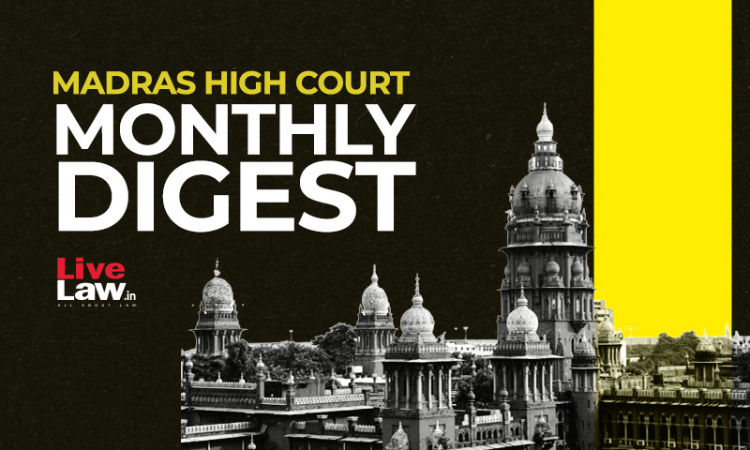- Home
- /
- High Courts
- /
- Madras High Court
- /
- Madras High Court Monthly Digest:...
Madras High Court Monthly Digest: March 2024
Upasana Sajeev
4 April 2024 1:15 PM IST
Citations: 2024 LiveLaw (Mad) 91 To 2024 LiveLaw (Mad) 142NOMINAL INDEX J Sheena v. TNPSC, 2024 LiveLaw (Mad) 91 M/s.Indralok Hotel Pvt. Ltd. versus The Greater Chennai Corporation, 2024 LiveLaw (Mad) 92 Reckitt Benckiser (India) Limited Versus State of Tamil Nadu, 2024 LiveLaw (Mad) 93 Karthick v Registrar General, 2024 LiveLaw (Mad) 94 D Bright Joseph v Church of...
Next Story



